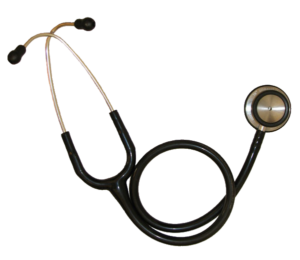 Nowadays many medical societies do NOT recommend annual physicals for healthy adults.
Nowadays many medical societies do NOT recommend annual physicals for healthy adults.
From Medscape: Is the Annual Physical Past Its Prime...Again?
Few medical societies still recommend healthy adults undergo annual physicals, and some groups actively recommend against them, yet many physicians continue to offer the visits to their patients. This week, oncologist and health policy expert Ezekiel Emanuel, MD, PhD, has taken the debate to the opinion pages of the New York Times, where he explains again why the formerly prescribed practice should be proscribed. Once again, however, not everyone agrees the healthy patient exam should be a thing of the past.
According to Dr Emanuel, who is vice provost, global initiatives, and chair, Department of Medical Ethics and Health Policy, University of Pennsylvania, Philadelphia, recent estimates say about 45 million Americans will have a routine general physical this year, which he likens to the human equivalent of the 15,000-mile check-up on their cars. "If you estimate the cost of the exam alone conservatively at $100, it's beginning to be a nontrivial amount of money," Dr Emanuel told Medscape Medical News.
And that is before you add in the costs of laboratory panels, follow-up tests, patient anxiety, and the overdiagnosis or overtreatment of conditions that, if left undetected, would never have become clinically significant. "We see this with prostate cancer and thyroid cancer," Dr Emanuel said.
As he writes, "If you screen thousands of people, maybe you'll find tens whose exams suggest they might have a disease. And then upon further tests, you'll find it is really only a few individuals who truly have something. And of those individuals, maybe one or two actually gain a health benefit from an early diagnosis."
From a health-promotion perspective, then, the annual physical exam is of little value, does not reduce morbidity and mortality from acute or serious chronic conditions, and may even lead to unwarranted complacency in "people who just want to make sure," he said to Medscape Medical News.
To support that statement, Dr Emanuel points to evidence from a 2012 Cochrane Collaboration review of 14 randomized controlled trials involving 182,000 people followed for a median of 9 years. The unequivocal conclusion of the analysis was that routine general check-ups, not prompted by actual symptoms, are unlikely to yield much benefit. No matter what screenings and tests were administered, annual physicals did not reduce mortality overall or specifically from the big killers, cancer and heart disease.
More recently, data from the Danish Inter99 study, a large, randomized trial, supported the conclusion that general check-ups are ineffective. The community-based trial of almost 60,000 adults aged 30 to 60 years, with screening for ischemic heart disease risk and repeated lifestyle interventions over the course of 5 years, found no effect on ischemic heart disease, stroke, or mortality at the population level after 10 years.
Dr Emanuel noted that the US Preventive Services Task Force does not recommend routine annual check-ups, and the Canadian Task Force on the Periodic Health Examination has recommended against the practice since 1979. "Those who preach the gospel of the routine physical have to produce the data to show why these physician visits are beneficial," he writes in his article.
So far, physicians' response to his op-ed piece "has been 90% supportive. They've looked at the data and are not convinced by the data [of the annual check-up's value]," he told Medscape Medical News... Many physicians, however, stand by an annual visit to the consulting room, including Peter C. Galier, MD, professor of medicine, University of California, Los Angeles, School of Medicine. "You can manipulate the data from these meta-analyses any way you want, but when you see patients regularly, you get important information that you may never get until there's an acute problem," he said.
